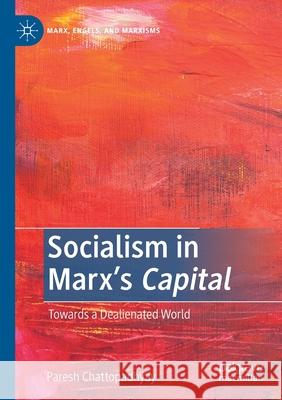Socialism in Marx's Capital: Towards a Dealienated World » książka
topmenu
Socialism in Marx's Capital: Towards a Dealienated World
ISBN-13: 9783030552053 / Angielski / Miękka / 2022 / 172 str.
Socialism in Marx's Capital: Towards a Dealienated World
ISBN-13: 9783030552053 / Angielski / Miękka / 2022 / 172 str.
cena 441,75
(netto: 420,71 VAT: 5%)
Najniższa cena z 30 dni: 424,07
(netto: 420,71 VAT: 5%)
Najniższa cena z 30 dni: 424,07
Termin realizacji zamówienia:
ok. 22 dni roboczych.
ok. 22 dni roboczych.
Darmowa dostawa!
This book explores how Marx envisaged society after capital(ism) by a close examination of the idea of socialism in the text(s) of Capital. Going beyond Marx’s critique of the Gotha Programme, Paresh Chattopadhyay challenges those who leave Capital aside in discussions of socialism in Marx’s works on the grounds that it is uniquely preoccupied with the critical analysis of capitalism. Instead, Chattopadhyay shows how Marx, in Capital, considered capitalism as a simple transitional society preparing the advent of socialism envisioned as an association of free and equal individuals.











